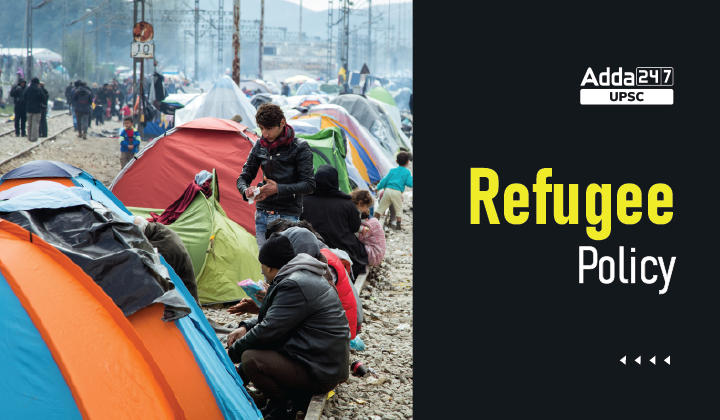Table of Contents
Refugee Policy- Relevance for UPSC Exam
General Studies II- International Relations.
In News
Recently the Ministry of Home Affairs (MHA) declared that Rohingyas are illegal foreigners.
Who are Rohingyas?
- Rohingya is an ethnic group comprising mostly the Muslims from the Rakhine province of west Myanmar and speak a Bengali dialect.
- Myanmar has classified them as “resident foreigners” or “associate citizens” and were forced to leave Myanmar in large numbers after violence against the which first began in 2012.
- The Myanmar army revived the attacks in 2017 and lakhs took shelter in Bangladesh.
India’s Refugee Policy
- India lacks specific legislation to address the problem of refugees in spite of their increasing inflow.
- The Foreigners Act, 1946, fails to address the peculiar problems faced by refugees as a class and gives unbridled power to the Central government to deport any foreign citizen.
- The Citizenship Amendment Act, 2019 (CAA) strikingly excludes Muslims from its purview and seeks to provide citizenship only to Hindu, Christian, Jain, Parsi, Sikh, and Buddhist immigrants persecuted in Bangladesh, Pakistan, and Afghanistan.
- India is not a party to the 1951 Refugee Convention and its 1967 Protocol which are the key legal documents pertaining to refugee protection, still India has a moral tradition for assimilating foreign people and culture.
- The constitution of India also respects the life, liberty, and dignity of human beings.
- The Supreme Court in the National Human Rights Commission vs. State of Arunachal Pradesh (1996) held that “while all rights are available to citizens, persons including foreign citizens are entitled to the right to equality and the right to life, among others.”
Issue with 1951 Refugee Convention
- The definition of refugees in the 1951 convention only pertains to the violation of civil and political rights, but not economic rights, of individuals and if the violation of economic rights were to be included in the definition of a refugee, it would clearly pose a major burden on the developed world.
Need for a law on Refugees
- India frequently experiences a large inflow of refugees which requires a long-term practical solution to make a shift from India’s charitable approach to a rights-based approach by enacting a national refugee law.
- A national refugee law will streamline refugee- status determination procedures for all kinds of refugees and will guarantee them the rights they have under international law.
- It could sufficiently address India’s security concerns, while at the same time ensuring that there is no unlawful detention or deportation carried out in the view of national-security concerns.
- The bulk of the refugee population in India originates from Sri Lanka, Tibet, Myanmar and Afghanistan though only Tibetan and Sri Lankan refugees are recognized as such by the government.
- They are provided protection and assistance directly through specific policies and rules formulated by the government.
Way Forward
The people demanding refuge are in a vulnerable situation and see a last ray of hope in an inclusive and tolerant country. Considering this, there should be an intake of refugees but not at the cost of the native population.
So, it is high time for India to define a clear-cut refugee legislation and policy.




 TSPSC Group 1 Question Paper 2024, Downl...
TSPSC Group 1 Question Paper 2024, Downl...
 TSPSC Group 1 Answer key 2024 Out, Downl...
TSPSC Group 1 Answer key 2024 Out, Downl...
 UPSC Prelims 2024 Question Paper, Downlo...
UPSC Prelims 2024 Question Paper, Downlo...




